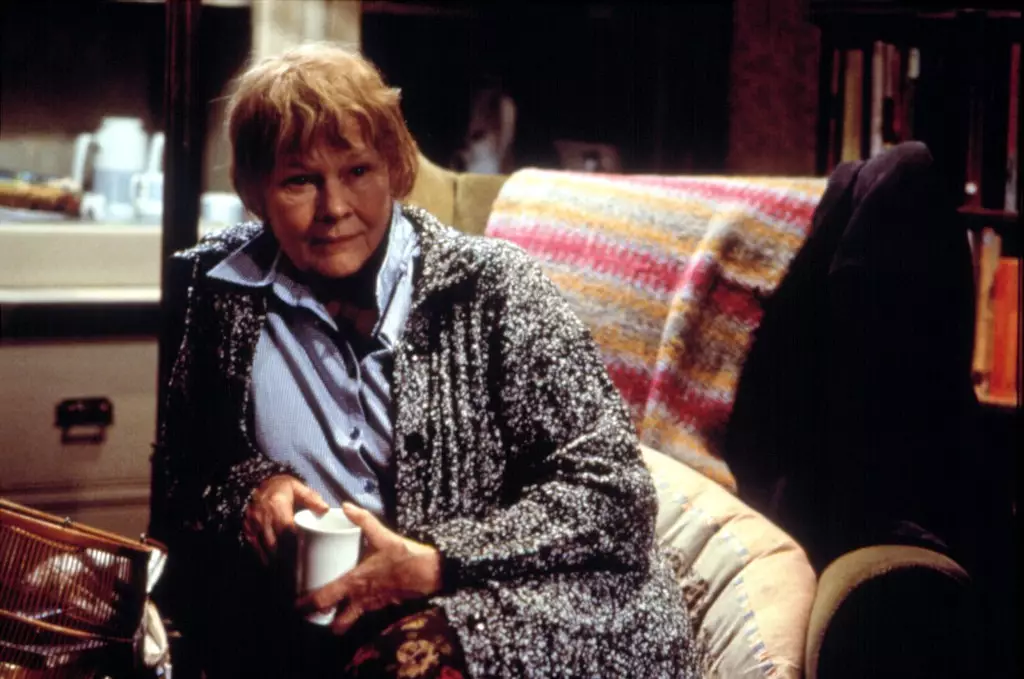Dame Judi Dench, a luminary of the British film industry, is not just an Oscar-nominated actress; she has become a powerful advocate for a cause that touches the lives of millions. Her recent support for the campaign “Dementia Unseen” sheds light on a heartbreaking reality: dementia is not merely a clinical condition but a widespread crisis that demands immediate attention. Nearly one million individuals in the UK grapple with dementia, yet an alarming statistic reveals that a staggering one in three live without a formal diagnosis. These numbers are not just statistics; they represent families, dreams, and identities at risk of being erased.
The British National Health Service (NHS), often lauded for its comprehensive care, stands at a crossroads when it comes to addressing dementia. As it currently operates, the pathway to diagnosis is fraught with obstacles, leaving many to navigate their struggles in uncertainty. Imagine waiting a year for a diagnosis after being referred—only to discover that the clock is ticking on the opportunity for early intervention. For those in the most deprived regions, these delays are exacerbated, plunging families further into turmoil as they watch their loved ones fade away without understanding the why or how.
The Human Cost of Delay
Dench’s poignant statements encapsulate the anguish felt by families tackling dementia. “Dementia doesn’t just take away memories—it can take away identity, connection, and the future you thought you had.” This is not merely a poetic expression—it’s a stark reality for countless British families. The social and emotional costs of delayed diagnosis are immeasurable and often lead to a sense of isolation that compounds the suffering of both the diagnosed and their caregivers.
The recent decision by the government to abandon a critical target designed to diagnose 66.7% of seniors with dementia is utterly bewildering. The lack of urgency reflects a gross misunderstanding of the complexities surrounding cognitive diseases. By sidestepping this obligation, policymakers are effectively gambling with human lives, sacrificing clarity, understanding, and support on the altar of political expediency. Dench’s involvement in the “Dementia Unseen” campaign is a clarion call not just for improved governmental action but a plea for society to recognize the urgency of this issue.
Empowerment Through Understanding
What’s the crux of Dench’s advocacy? It boils down to the need for early diagnosis, which should be viewed as a fundamental right for everyone dealing with dementia. Without timely intervention, individuals are deprived of opportunities to engage with support systems, make informed choices, and participate in important research that could contribute to their care—but most heartbreakingly, they miss out on the precious moments that remain with their families. As Hilary Evans-Newton, Chief Executive of Alzheimer’s Research UK, argues, “Everyone who has dementia should have the right to know the disease… but hundreds of thousands are waiting too long for a diagnosis.” This is no longer just an issue of health care; it has morphed into a human rights crisis.
The desire for clarity amid the storm of confusion brought on by dementia is not too much to ask. Families deserve the opportunity to understand the nature of the conditions affecting their loved ones, allowing them to plan and engage in proactive measures that can sometimes mitigate the effects of these debilitating diseases. The right to dignity should accompany every diagnosis—something that the current system fails to deliver on too often.
Urgent Collective Action
Now is the time for collective action. Dench’s high-profile support lends an indispensable voice to a cause that often languishes in the shadows. This activism calls for citizens, health professionals, and policymakers to unify their efforts and tackle the systemic barriers hindering timely diagnoses. If we are truly advocates for a humane society, we must prioritize initiatives aimed at improving access to care and streamline referral processes, ensuring that no one has to face dementia alone or without answers.
In a nation that prides itself on community and care, how can we accept a status quo that leaves our most vulnerable citizens without the support they desperately need? The time is ripe for transformation in how dementia is diagnosed and treated—because the cost of inaction is not merely measured in years lost—it is counted in the very essence of human connection.


Leave a Reply